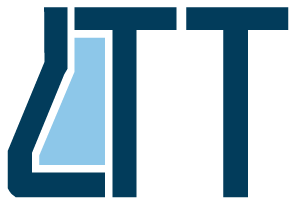“I had already completed two bachelor’s degrees in the Northern Territory at Charles Darwin University. This was back in 2008. I didn’t get any work experience and wasn’t able to get a job from those. I tried through entrance level in the admin at a laboratory, but it never went anywhere.
I moved to Western Australia and re-enrolled at Curtin University. My first year was a Bachelor of Medical Laboratory. I completed it, but it was really hard and really intense. Only two of the eight units were relevant. I decided to take a year off studying to travel. I looked at the jobs I wanted on SEEK and found that they only required a Certificate IV. I came in to LTT for an info session to find out more and ended up enrolling in a diploma.
Within two months of completing my qualification (August 2018), I got a phone call because I’d been scouted by ALS. I started working in a geochem lab and stayed there for nine months. Even though I’m more interested in medical labs, they seemed to only have one vacancy for 100 mining jobs. I thought instead of just waiting for the perfect job, I’ll get some lab experience in a mining lab. While it was fun and fascinating, it just wasn’t for me.
I started applying for more medical lab jobs and that took a while to show any traction, I did maybe one interview to the multiple jobs I applied for - that was until three weeks ago, when I received a call from Clinipath, asking whether I’d be interested in applying for a haematology position that had just opened up. I said definitely! We had a quick chat over the phone and I was asked to interview the next week. I went in for the job interview on a Monday, and was offered the role the next day!
I’m receiving massive amounts of training and support at Clinipath, although the lab experience I gained from high school, uni and LTT makes the tasks I’m doing seem familiar. Before getting her current role at Clinipath, the lab assistant supervising my training completed her certificate III and IV before working in sample receipts for a year. She said her brother has gone through uni recently and he hasn’t been able to get a job. He is thinking of turning towards a certificate. It seems to be that most labs are looking for people with certificates.
I really liked Sahar, she kept emphasising that even though a lot of processes are now automated, the manual side of testing is very important to know. It’s all about working with the machines, the manuals, and troubleshooting. Because Sahar had done so much in her years in laboratories, she taught us how the machines work and how to troubleshoot. The practical component of the course was the most enjoyable but also the most important. It’s all about technique. The scientists are dealing with the theory and huge volumes of information, we are literally carrying out the tests, so we have to ensure we’re providing correct samples.
Sahar said if there’s a position at the bottom, take it, because learning and working your way up is invaluable. If you don’t know how to do the basics, you won’t be able to perform in a lab. I’m just so glad I didn’t give up. This is what I’ve always wanted. Science has always been my passion.”
Street Address
City, State, Zip
1300 588 588
Your Custom Text Here

